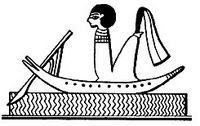The Coaching Commons posted advance notice of Thomas Moore’s event at Marble Collegiate Church last Saturday and two attendees kindly followed up with impressions of Moore’s talk. Then,
Thomas Moore added
his impressions of the occasion:
Nina Frost on 14 May 2008:
Thanks for your request for some comments. As one of the people who interviewed Moore, a favorite author, I was struck by his adherence to mystery, paradox, to not knowing. He continually took himself off any pedestals and called people back to their own authority – a natural coaching aspect, no?
One thing that really struck me, and there were many. (Indeed, I would recommend you stay in touch with Katherine Gotshall English re: the eventual CD of this event.) He wound up his reply to one of my questions by saying that in his many years as a psychotherapist, one common denominator with troubled folks is that they ignore (at their peril) the "flow of their own river." They get in the way of what is trying to happen organically, even if (especially if) that thing is disruptive, or strange or "not them." This really landed.
For more on these "antithetical" yet crucial parts of ourselves, I commend to you his new book,
A Life at Work, particularly the chapter on the daimon.
Thanks for inviting this post. Blessings to you all.
Nina Frost
The Vocare Group
New York City
Rick Raymond on 14 May 2008:
What a wonderful opportunity to listen to conversations with Thomas Moore last Saturday, May 10 at Marble Collegiate. Sitting in the sanctuary I felt perspectives that resonated with and transported me with my deeper beliefs, infrequently spoken, now affirmed and reassured. He spoke in metaphors - the river as the flow of life, a constant stream and yet full of uncertainty. Some of the wonderful and strong messages that I enjoyed were:
In the stream we can best be who we are, which is the ultimate expression of creativity. Love our work, and be loyal to our genius and what he called our "law" – that which we must do. Be passionate about our problems, which are ours uniquely. Doing so may bring us to a place beyond our problems. Being in the flow is about lack of (self) judgment.
Speaking about relationships he said that eccentricities are the connections that make a relationship exciting and alive. He also stated some perspectives that we might find controversial. He would rather be in an interesting relationship than a healthy one; and be you over being truthful.
It was a wonderful time of having the mind stirred like a rich Italian wedding soup simmering on the back burner of the stove.
Thomas Moore on 15 May 2008:
I enjoyed the day at Marble Collegiate church very much: excellent music, a well-designed program, very fine conversations, and a beautiful setting. Nina Frost zeroed in on key themes and allowed me to rhapsodize about the river, an image I first explored in an essay on ritual many years ago. David Lewicki concentrated on the process of the conversation. I particularly liked looking for the hidden narratives deep in our talk. John Killinger surprised and delighted me by bringing up Jean Genet’s The Balcony. John and I share an interest in theater of the absurd. In my graduate school days at Syracuse University I took an independent study on these plays with Stanley Hopper. Appropriately Stanley and I met in a stock room full of empty boxes. I’ve always enjoyed Eugene Ionesco’s line in The Bald Soprano where a doctor says he always operates on himself before doing surgery on a patient, and a line in The Lesson where the student is going for her "total doctorate." She adds perfectly but can’t subtract. A common problem for us all.
Thomas
Katherine Gotshall English choreographed the day perfectly.
_______________
For information about a CD of this Marble Collegiate Church event:
Katherine Gotshall English:
kathcoach@earthlink.netLabels: A Life at Work, Event, Thomas Moore


